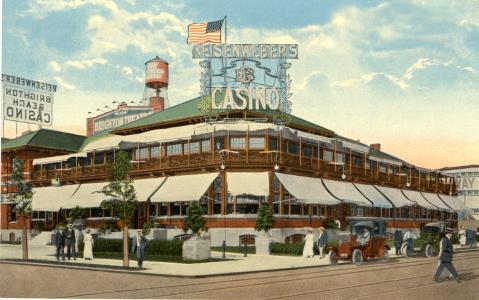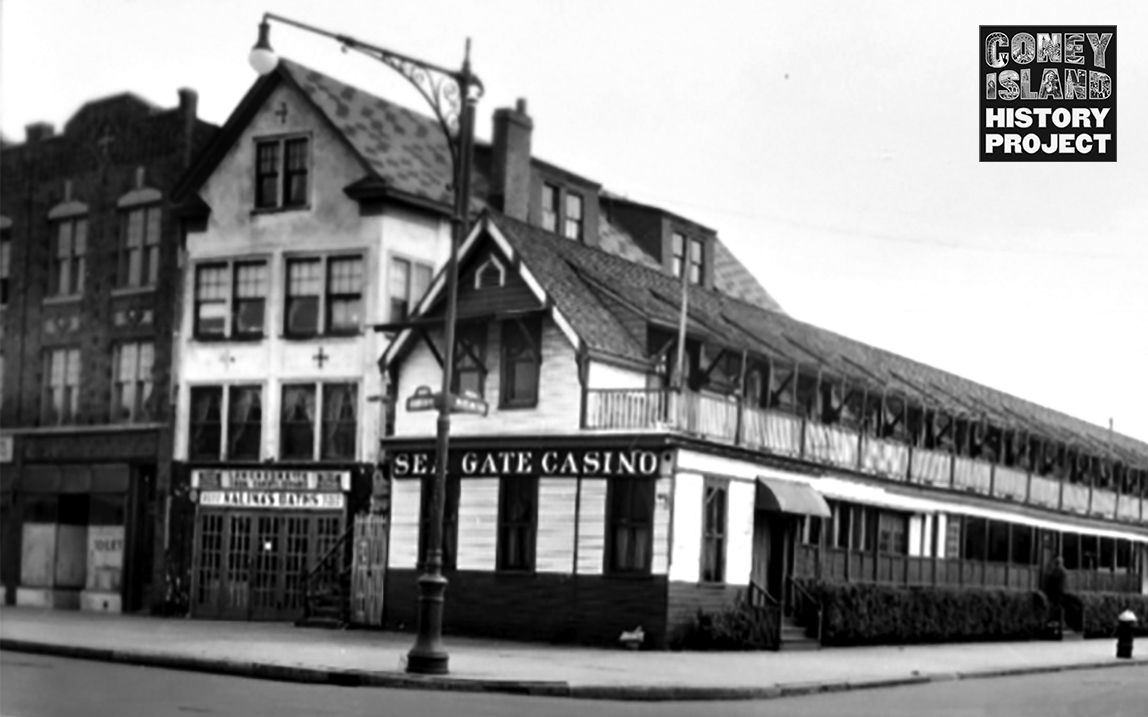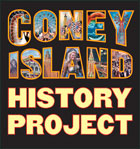
By Charles Denson
Coney Island casino developers need a history lesson. Reisenwebers Restaurant was not a gambling casino!
The Coney Island casino developers are making the false claim that gambling casinos were once a traditional business in Coney Island. Their claim is a major part of the PowerPoint presentation they show at public hearings and to elected officials. The presentation shows an old postcard of a building with a roof sign that says “Reisenweber’s Casino.” That’s the extent of their proof.
The problem is that their claim is absolutely FALSE. There were never gambling casinos in Coney Island. In the past it was common for dance halls, cabarets, bungalow colonies, restaurants, and bathhouses to call themselves “casinos.” The word “casino” had absolutely nothing to do with gambling.
This is a truth can easily be fact-checked. There are no photographs, tax records, licenses, newspaper stories, advertisements, or recorded memories of a gambling casino ever operating in Coney Island. “The Coney” casino developers sold their claim based on one postcard image, and the New York City Planning Commission bought the lie.
This type of fraud creates serious problems when used to influence public policy. This is exactly what happened when the Planning Commission approved the zoning for the casino on May 7, 2025.
Here is a direct quote from page 14 of the Planning Commission’s approval of the rezoning of Coney Island for the casino:
“Casinos were once a popular and established use in Coney Island and a gaming facility returning to Coney will not only reinforce the area as an amusement district but also establish a new, year-round destination for residents and tourists, aligned with the goals of the Special Coney Island District.”
In other words, the Planning Commision declaring that the casino project is “appropriate” is based on a lie. Why are the developers creating this false narrative? It’s well known that developers make false claims and play loose with the facts when trying to sell a project. This highlights just one small part of The Coney casino’s efforts to manipulate the public and elected officials. (More on that later.)
The Planning Commission has accepted a blatantly false statement without question and actually expanded on it in their report. There was NO due diligence. The false claim about previous casinos has also been repeated by lobbyist Domenic Recchia and others at several public hearings.
The Coney’s lie morphed into a “Bring Back Casinos” meme that sounds much like Trump’s Make America Great Again motto. It becomes a nostalgic trigger, a wish to return something that never existed.
Something else should be remembered. There once was a racetrack in Brighton Beach where it was possible to bet on horse races. Throughout its history, the track was riddled with corruption, leading to indictments of the track’s owners including the founder of Brighton Beach, William Engemen.
Hopefully, this destructive casino project will NOT happen. Big money brings big corruption. History repeats itself. Be careful what you wish for.

The Sea Gate Casino bungalow colony on Surf Avenue at West 33rd Street in 1940. It was not a gambling casino!

Add new comment